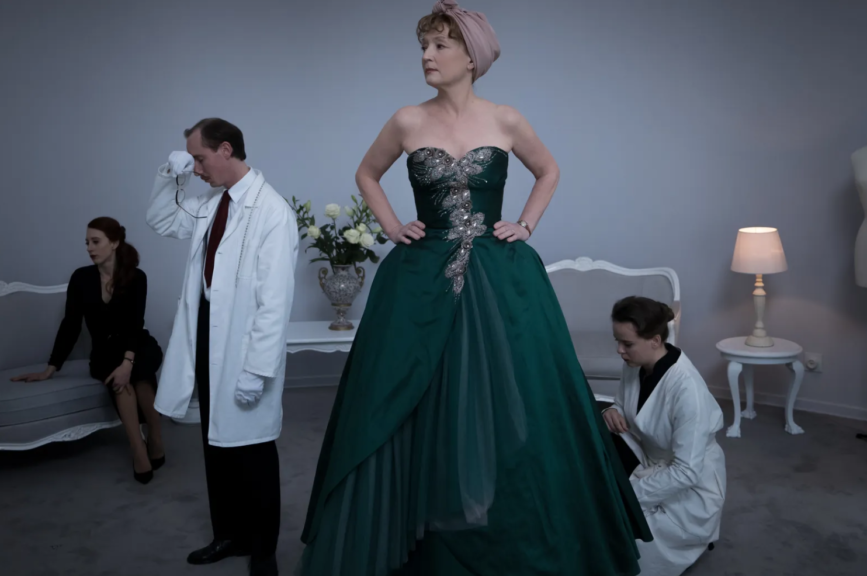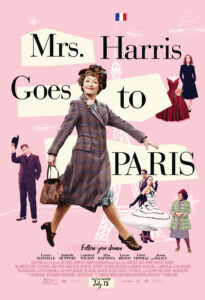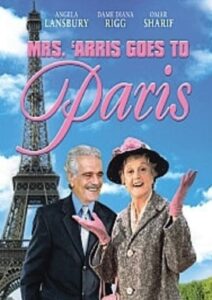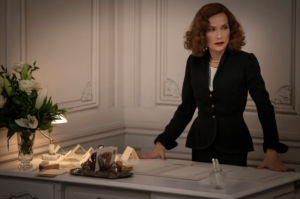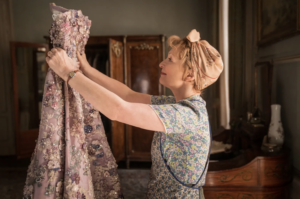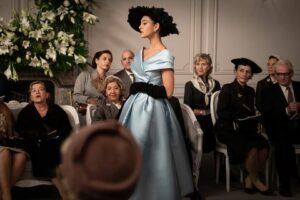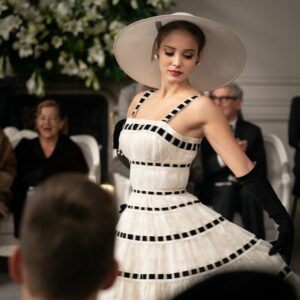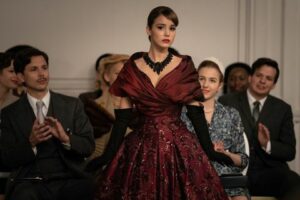Directed by Anthony Fabian | Written by Fabian, Carroll Cartwright, Keith Thompson and Olivia Hetreed, based on a novel by Paul Gallico | 115 min | ▲▲▲▲△ | Crave
My research about this picture revealed a TV movie adaptation of the source novel, by it’s original title, Mrs ‘Arris Goes To Paris, was made in 1992. It starred Angela Lansbury (working a bit of Cockney), Diana Rigg (working a bit of French), and Omar Sharif.
It’s available on YouTube, and I’ve got it on as I’m writing this. My first impression is the way it’s using locations suggests a TV movie from 30 years ago had a bigger budget than a feature film on the same subject today. It’s also got a bit more grit in its depiction of working class life and a little less fairy dust.
But what the TV movie is missing is the sophistication beneath the fantasy. What makes Mrs Harris Goes To Paris a special picture is that while it celebrates the artistry and elegance of the House of Dior — who are partners in this film’s production — it’s actually mostly about the solidarity and self-respect in the working class.
I know! I was surprised, too.
It’s 1957: War widow Ada Harris (Lesley Manville, terrific) lives in Battersea, London, and works as a cleaner across the river in the more tony streets of Chelsea. Dazzled by a Dior dress she clocked at one of the homes she’s cleaning, she works hard to save her money to purchase one of her own. A trip to the White City dog track with her friends Vi and Archie (Ellen Thomas and Jason Isaacs) doesn’t go entirely well, but a series of windfalls helps her bank enough cash to go to Paris for a day and purchase a dress.
The kindness of strangers and another spate of good luck gets her through the door of the actual Dior fashion house. While a house manager, Mme Colbert (Isabelle Huppert), is eager to eject Mrs Harris, she’s rescued by the Marquis de Chassagne (Lambert Wilson) who brings her into the salon as his guest, and she’s able to see the show.
None of this or what follows comes close to anything resembling realism, particularly how Mrs Harris seems to charm everyone around her with a well-scrubbed Cockney attitude and a kind heart, but this script has no fat — every scene moves swiftly with a dollop of humour and a wonderfully light touch. It’s the kind of material that if you lean into its magical conceits it’ll yield a lot of pleasures.
These include the idea that nobody is beyond redemption, and that beauty for beauty’s sake is a worthwhile pursuit. We also get a romantic subplot between two entirely fetching Parisiennes (played by Alba Baptista and Lucas Bravo), a lot of gorgeous frocks, and the charming idea that pursing your dreams at any age is something to do, no matter how outrageous.
But what’s most potent here is the way the subtext becomes text over the course of the film: city workers win their strike and depose corrupt management, a staff on the verge of losing their jobs help reimagine what’s best about what they do by making it more accessible to a broader clientele. And Mrs Harris spells it all out in the late-going, and I paraphrase: The days are over when people with status and money get to treat those without like dirt.
If only that sentiment was something we took for granted today.
This is a film certainly programmed for an older audience, perhaps one that remembers with fondness the era the film depicts, but I challenge anyone to not find themselves under the spell of Mrs Harris. I’d call it the sweetest time at the movies since the last Paddington movie.





